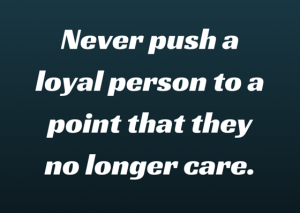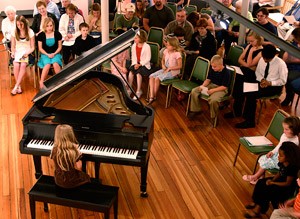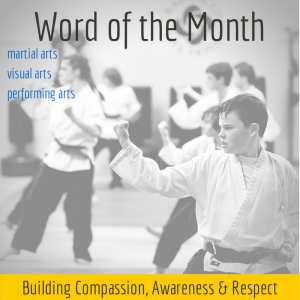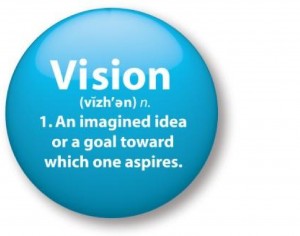 Children can learn loyalty by practicing it first with family members, then with friends, teams and classmates. The practice of loyalty may begin with being trustworthy and helping the family by doing chores – both your own and maybe even helping others with theirs if they are not able to complete them due to sickness.
Children can learn loyalty by practicing it first with family members, then with friends, teams and classmates. The practice of loyalty may begin with being trustworthy and helping the family by doing chores – both your own and maybe even helping others with theirs if they are not able to complete them due to sickness.
Sticking up for our family members, speaking up and supporting a younger sibling who may be having difficulty with a friend is a way of showing loyalty. Keeping our word to a younger brother or sister will help them to see loyalty in action and to feel the assurance that you will have their back in times of trouble.
What if you are a loyal friend though and your friend does not keep their word? They tell you they are going to come over to your house and then cancel – over and over again. Or they promise to keep your secrets and not tell anyone – yet you find out that they did tell others. What would you do?
We posed that question to our students this week. The answer that was agreed on by most was that your friendship would most likely have to be examined. While you may not dismiss them completely, if you are not able to trust them, you may need to decide if this is healthy for you or not. One student said your relationship is going to change and you would not want to confide in them, in fact you may decide that they should be more of an acquaintance rather than a best friend.
Some students suggested that they would tell the person it was hard to be ‘best friends’ when you did not feel they were being loyal to them. Others suggested that could be done without hurting the feelings of another person, simply by not sharing private thoughts etc. and gradually changing the relationship.
Presenting these kind of scenarios to our children will help them to think these situations out before they actually happen. Allow them to come up with answers and ways of handling the problem. This will prepare them for real world problems, and not surprise them, which might result in a bigger battle. Balanced Life Skills is helping our students understand loyalty and opening the conversation for parents to have with their children on this key life skill.



